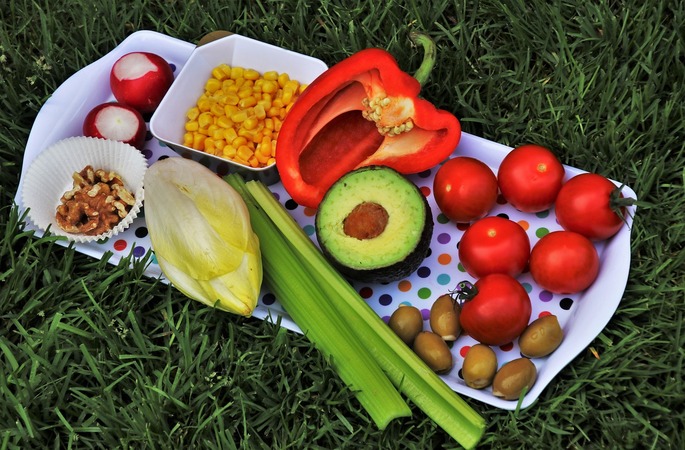The focus on exercise is the most obvious aspect of fitness. But the energy to exercise comes from proper nutrition and a balanced attitude to food intake.
“The food you eat can be either the safest and most powerful form of medicine or the slowest form of poison.”
– Ann Wigmore
Kabeer Refai is a dynamic business executive who has an ‘access all areas’ perspective on life, believing we should all live our lives to the fullest extent we can at all times, even within the restrictions of time and social context.
He has learned from personal experience how much an individual can transform the quality of their life by conscious restructuring, education and awareness about food intake.
We at FemAsia asked Kabeer Refai, his advice on how to eat right.
How important is fitness and strength in a person’s life? How does keeping fit and robust benefit our lives?
Simply put, I’ve always believed in the saying of ‘Healthy Body, Healthy Mind’. Apart from the obvious physical benefits (reduced risk of disease, enhanced appeal, better reflexes, etc.), exercising regularly has a myriad of psychological benefits that are often overlooked, or not even understood. Going deeper into the subject, when you exercise, your body releases Endorphins, which interact with receptors in your brain which in turn immediately uplift your psychological state.
Women are often encouraged to focus on their appearance rather than their health, and the dieting culture which shames women for their size, and urges them to lose weight continually, is harmful in many ways. What do you think about it?
First off, I believe that everyone is perfect, but if anyone chooses to diet and achieve a particular body type then it’s their own choice, and I respect the dedication and the commitment that comes along with it. Yes, there are a lot of (bluntly put) bad, half-baked diet plans around. Ensure that you get your diet plan from a qualified dietician and not from any other source. The fact remains that the body cannot function without the adequate supply of all nutrients. Even The Paleo Diet advocates carbohydrates at least two times a week, contrary to popular belief that it advises complete carb cutting. I believe it is a matter of understanding your body type and devising a diet plan that moderates the right and wrong foods for you. I wouldn’t term them ‘bad’ foods, but depending on your body type (whether Ectomorph, Mesomorph or Endomorph) you may need to regulate the consumption.
What snacks would you recommend between meals and why?
Personally, I’ve found that the most effective snacks are fruit & vegetables. They are packed with nutrients, and give you an energy boost, especially when consumed in the second half of the day. But if you get a little creative, there is always a way not to compromise on your traditional snacks – baked potato chips versus deep fried, whole wheat flour for pies. It’s been proven that even dark chocolate has some health benefits as well – in moderate consumption of course.
Are there best times in the daily routine when it is best to have specific foods?
The traditional general rule of thumb as per many fitness experts is a hearty breakfast, a moderate lunch and a light dinner. Breakfast should ideally include a large protein intake with fruits; I don’t believe in the ‘No Carbs During Dinner’ convention. Honestly, I’ve personally seen people who consume carbs during dinner and still lose weight. I think, the whole “I can lose weight purely by dieting” is not realistic: to lose weight healthily, you need to combine a diet plan that works for you with an appropriate exercise regimen.
Can you tell us how important a fitness routine is in maintaining emotional and psychological well-being?
I already mentioned the effect of Endorphins on brain receptors when you exercise. Also, what exercise does from a psychological perspective is that it gives you a sense of achievement and confidence. This sense of confidence spills over into the other facets of your life. Further, when you devote yourself entirely to a goal, you build focus, discipline and commitment, qualities essential to anyone’s psychological well-being. In fact, there have been studies from a variety of universities and other reputable bodies which have demonstrated the positive effect exercise has on a person’s mentality.
People vary their monthly and yearly routines according to their age and capability and also the different seasons and climates in which they live. How do you keep your commitment to fitness and nutritional well-being matched up with variations in your schedule?
I might be a little harsh here! I believe that age is nothing but a number. Barely a week back, at the Arnold Sports Festival, a 70-year-old did a Vertical Flagpole (a feat which people of 20 years of age are unable to do). I’ve personally seen a 67-year-old former Mr Sri Lanka outlift everyone (including myself) at a gym in Borella. If you want a famous example, Idris Elba is making his kickboxing debut at 44 years of age. I honestly believe you can do any routine if you put your heart into it. It’s a fact that seasonal changes do have an effect, but then I always ask myself, how do the strongest men in the world come from Iceland? It’s a matter of adapting and improvising. As an example, during the cold season, with rain, it’s a fact that you cannot run outside, so choose the alternative and rope skip, indoors.
What are the most important facts you have learned in your awareness of the significance of health and fitness in your own life?
I’ve found that the physical benefits have helped build a stronger immune system with reduced risk of injuries; and from a psychological point of view, it helped me when faced with insurmountable odds. Whenever you feel downtrodden, exercising gives you a sense of self-worth and immediately elevates your esteem.
How can a person efficiently support her health while living in the often stressed and sedentary lifestyle of our contemporary era?
I don’t think you should vary your routine to suit your lifestyle; you should make time whatever your lifestyle is. I know one head of a large bank, and she usually flies a minimum of 12 times a month, but never misses a workout as she improvises and chooses what she eats carefully. It’s a matter of focus and commitment.
What benefits does good health bring to our attitudes and the way we relate to others?
As someone who has trained a few people over the years, it is my view that any form of exercise, be it weights, cardio, cross-fit, martial arts, etc., builds a sense of discipline in the people who practise it. There is a sense of respect in the way they approach others, a sense of reverence; I’ve seen this transfer directly into their personal lives. It enhances the way they interact with each other; it gives them an outlet to direct their otherwise harmful negative energies. I might even go as far as to call this the ‘Gym Zen’.
How can we support our family members and friends in living a healthier lifestyle?
By embodying the values, we believe in ourselves. I come from a family where all the men and women were involved in some form of exercise. I had every type of active person in my family, from traditional dancers to champion weightlifters to national level martial artists. And I see their children having the same level of commitment and devotion to anything that they do, from their education to their career. The point is, it’s contagious. If a transition in mindset is required, you may need to ease them in, because deep inside everyone wants to be fitter, feel more confident and live a healthier lifestyle. I am yet to hear anyone complain: “oh shoot I’ve lost a few inches off my waist!” I’ve found that educating your family members is a prerequisite for them to making them take up the commitment to their health.
The foods you choose to eat in your daily diet make a difference not only in your general health but also to how well you feel, and how much energy you have every day.



